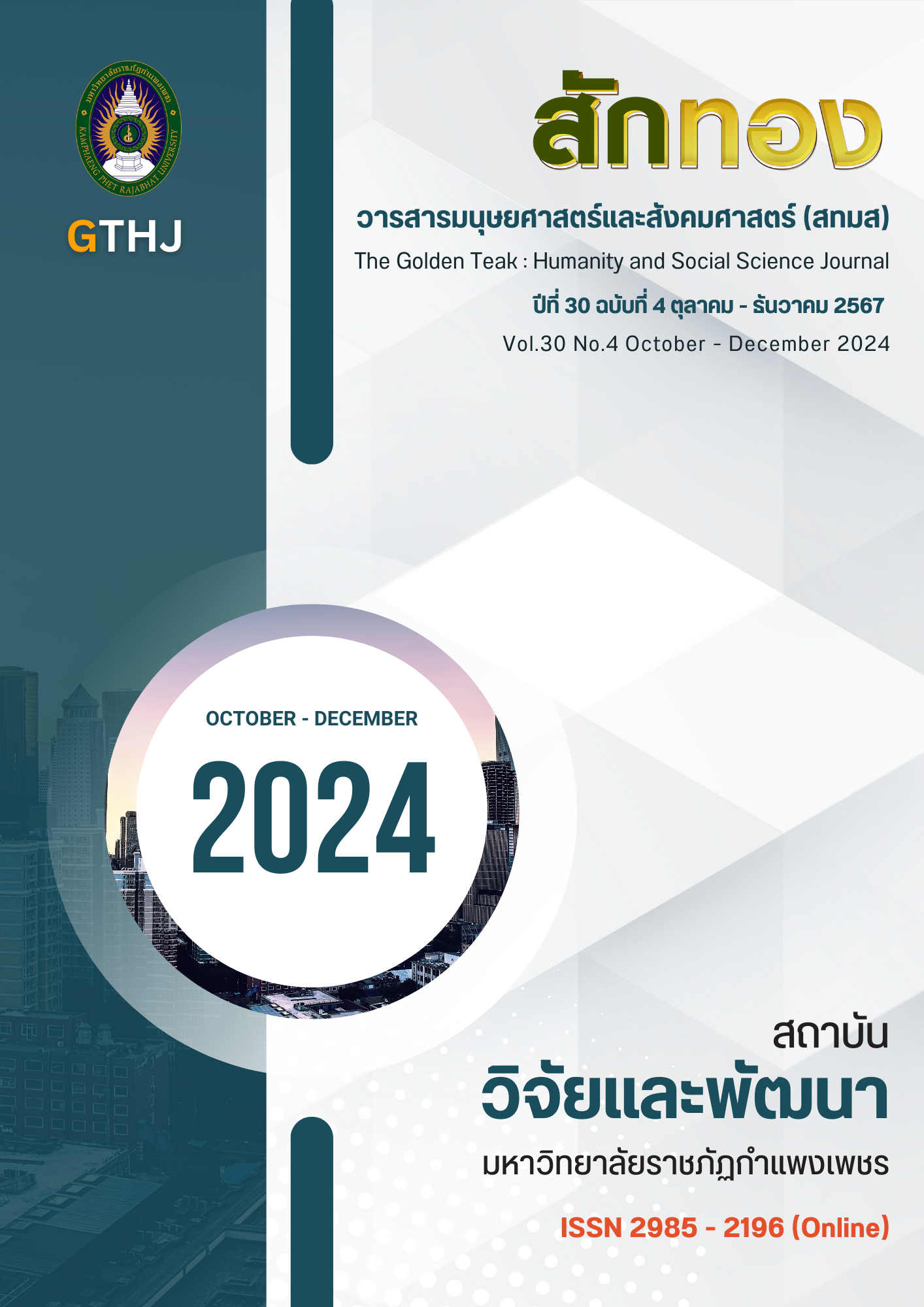The Development of a School Garden by School and Community Participation of Banhuaybong School in Chaiprakan District, Chiang Mai Province
Main Article Content
Abstract
The purposes of this mixed methods research were to 1. study the barriers of Banhuaybong school garden management, 2. study the potential of Banhuaybong school and community for the development of a school garden, and 3. develop a school garden through the school and community participation. This study employed Participatory Action Research (PAR) approach with field notes, participant observation form, and semi-structured interview form as research tools to collect the relevant data by means of participation observation, interviews, and focus groups from 85 key informants using purposive sampling method. Descriptive and content analysis with statistical frequency and percentage were applied to analyze the derived data. The study found that 1. The main barrier of school garden maintenance was the lack of school personnel with knowledge and expertise for cultivation in sustainable agriculture systems. 2. The school and community demonstrated high potential for the school garden development with the agricultural knowledge and skills as Karen background plus abundance natural resources for cultivation found in the village boundary. The findings demonstrated that students and community representatives had a high level of agricultural knowledge and skills, evidently from the presence of agricultural activities at the household level accounted for 93 percent and 96 percent, respectively. School personnel had moderate agricultural knowledge and skills, and only a minority engaged in agricultural activities at the household level, accounting for 38 percent. Lastly, 3. The development of a school garden through the school and community participation approach were accomplished in 4 stages, namely 1) Participation in planning by organizing meetings of community leaders and school personnel to communicate project objectives and discuss decision-making information under the concept of geosocial based sustainable development; 2) Participation in implementation starting from educating about sustainable agriculture and persuade community members to participate in the school garden development, consisting of 7 steps of cultivation: (1) soil preparation (2) sowing (3) planting (4) irrigation (5) fertilizing (6) weeding and (7) harvesting; 3) Participation in benefits which resulted in an integrative learning space with quality produce for the school while the community has learned an environmental-friendly agriculture system; and, 4) Participation in evaluation along with proposing school garden maintenance guidelines to remain available for future students.
Article Details

This work is licensed under a Creative Commons Attribution-NonCommercial-NoDerivatives 4.0 International License.
บทความที่ได้รับการตีพิมพ์เป็นลิขสิทธิ์ของวารสาร สักทอง : วารสารมนุษยศาสตร์และสังคมศาสตร์ สถาบันวิจัยและพัฒนา มหาวิทยาลับราชภัฏกำแพงเพชร
ข้อคิดเห็นใดๆ ที่ปรากฎในวารสารเป็นวรรณกรรมของผู้เขียนโดยเฉพาะ ซึ่งมหาวิทยาลัยราชภัฏกำแพงเพชรและบรรณาธิการไม่จำเป็นต้องเห็นด้วย
References
Chenaksara, N., Punnakhan, P. K., & Duangsamran, K. (2021). Management Strategies to Create Engagement with the Community. Journal of Institute of Trainer Monk Development [Online Serial], 4, (2). Available : https://so06.tci-thaijo.org/index.php/ tmd/article/view/251577/170781 [2022, May 20]. [In Thai]
Cohen, J.M. & Uphoff, N.T. (1980). Participation's Place in Rural Development : Seeking Clarity Through Specificity. World Development, 8(3), 213-235.
Office of the Education Council. (2017). The National Education Plan B.E. 2560-2579 (2017-2036). Bangkok : Office of the Education Council. [In Thai]
Phuangsomjit, C. (2017). Establishing School-Community Relationships. Veridian E-Journal, Silpakorn University [Online Serial], 10, (2). Available : https://he02.tci-thaijo.org/ index.php/ Veridian-E-ournal/article/view/98396/76585 [2022, May 20]. [In Thai]
Pinthongpan, A. (2014). Beautiful and Edible Garden to Promote Food Security : a Case Study of Soi Bonkai-Thayang Community, Kho Hong Sub-District, Hatyai Distirct, Songhla Province. Master's thesis, Prince of Songkla University. [In Thai]
Reijntjes, C. & Haverkort, B. & Waters-Bayer, Ann. (1992). Farming for the future: An introduction to low-external input and sustainable agriculture. London : Macmillan Education.
Sri-ngernyuang, K. & Satienperakul, K. (2014). Concepts and Theories in the Royal Initiatives. Chiang Mai : Faculty of Agricultural Production, Maejo University. [In Thai]
Suwan, S., Fakcharoenphol, W. & Changchai, A. (2019). Participatory Research and Development to Promote Safe Vegetable Production for School Lunch in Small school Context (9-Gloriousness Projects). Journal for Social Sciences Research [Online Serial], 10, (1). Available : https://so02.tci-thaijo.org/index.php/ssr/article/view/211877/146810 [2022, May 20]. [In Thai]
Wattanajang, T. (2013). A Learning-Activity Arrangement of Participatory Agricultural Work between Local School and Community : A Case Study of Wat Sukboontharikaram School and Chemical Free Vegetable Farmer Group in Bueng Cham O Community, Nong Suea District, Pathumthani Province. Bangkok : Agricultural Land Reform Office. [In Thai]
Wudthisawas, P. & Kongsila, T. (2023). The Participatory Management in Bamboo Resources at Ban Phatub Community Amphur MuangNan, Nan Province. The Golden Teak : Humanity and Social Science Journal [Online Serial], 29, (1). Available : https://so05.tci-thaijo.org/index.php/tgt/article/view/252203 [2023, February 14].
[In Thai]
Yingyuad, N., Tanpichai, P., Srisuantang, S. & Kerdsap, T. (2018). The development of Agricultural and Environmental Learning Activity through the Participation of Network and Partnership: A Case Study Edible Garden in Wat Sali School, Suphanburi Province. Veridian E-Journal, Silpakorn University [Online Serial], 11, (1). Available : https://he02.tci-thaijo.org/index.php/Veridian-E-Journal/article/view/118623/90940 [2023, November 5]. [In Thai]


